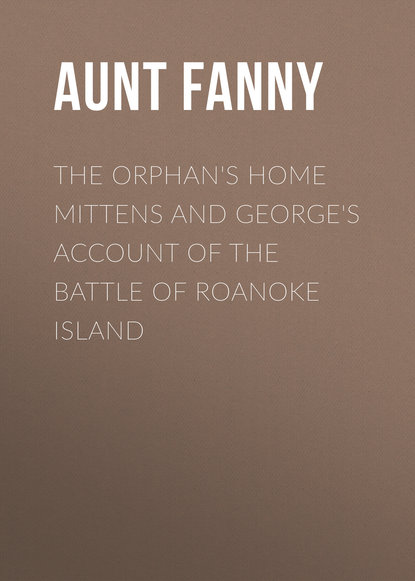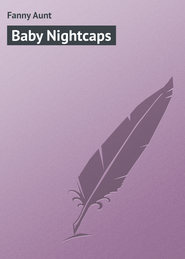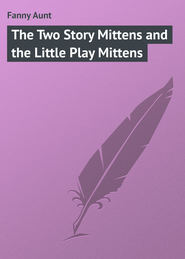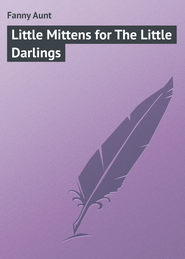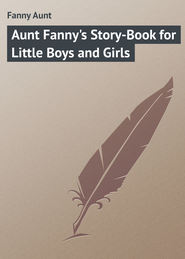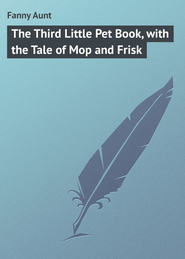По всем вопросам обращайтесь на: info@litportal.ru
(©) 2003-2024.
✖
The Orphan's Home Mittens and George's Account of the Battle of Roanoke Island
Настройки чтения
Размер шрифта
Высота строк
Поля
"If the President thought so," said Harry, "he would soon say the word. I think he is the very best President we ever had; so honest and straight out. He don't think of himself; only of his country, and what is best for her. He's a dear, good old fellow, and if I saw him, I should just go up to him and say, 'I love you, President Lincoln, for you are an honest man.'"
"And so should I," said Johnny. "Aunt Fanny declares that anybody else's head would have become addled and utterly confounded by this time, with all this terrible war and confusion; but Mr. Lincoln's HONESTY OF HEART keeps his head clear, and so he does his duty; while his enemies snap and snarl; but they never 'catch a gudgeon.' Do you know Aunt Fanny?" he asked.
"Oh yes," cried all the boys.
"Well, her daughter wrote such a nice piece about the President, that I have learned it. If you like, I will tell it to you."
"That we should!" cried the boys; so Johnny in a clear voice began:
"Fling out the broad banner! make ready each hand!
For the cry of Disunion is rife in our land;
Each day may behold a new battle begun,
And true blood must flow ere the victory's won.
Then loud let the message ring out to the South:
'Republicans have but one heart and one mouth.
For the freedom we love, for the land we adore,
For the Union, and Abraham Lincoln – hurrah!'
"What! brothers and countrymen! mean you to part,
With a curse on each lip, and revenge in each heart?
What! fly from a government simple, but grand,
Your future to build on foundations of sand?
No! Stop, while 'tis time, oh ye men of the South,
Let us have for our country one heart and one mouth,
And, brothers once more in the land we adore,
We'll shout 'For The Union Forever! Hurrah!'
"Then let enemies thicken; we'll never despair,
Where unity is – behold victory there!
Disunite – in the ruins of home you will lie,
In Union you conquer – without it, you die.
Oh then, let it come from the North and the South:
'We have but one country, one heart, and one mouth.
For the freedom we love, for the land we adore,
For the Union, and Abraham Lincoln – Hurrah!'"
By the time Johnny had finished, a dozen more lads and some gentlemen had gathered round to listen. The little fellow's color mounted high, but he went on with admirable emphasis and animation to the end; and then let me tell you that, when he uttered the last "Hurrah," the boys snatched their hats off, and joined in with such a will, that the stunted old trees in the Park cracked again! and if it was not a very immense mass meeting, it was a highly respectable one, and perfectly unanimous.
"That was splendid!" said the bright boy, who had advised the President to proclaim universal freedom. "I love Aunt Fanny's daughter for writing it; and you may tell her so. I wonder if she wrote the beautiful little poem mother read to me the other day from the Rebellion Record. It set her crying; and I had hard work, I can tell you, to keep my face from puckering up."
"Oh, can you remember it?" asked some of the boys. "Do try."
"Yes; I learned it, only reading it twice after mother had read it to me. I don't know as you will like it as much as I did; but I've got a little brother, who says just such things the whole time." "Why, so have we," cried Johnny, "lots of them! so come let's hear it."
The little fellow put his finger on his lip, to think for a moment, and then began in a low voice; all the boys crowding round so as not to lose a word.
"Willie stood at the window —
Little Willie, five years old —
Watching the rainbow colors,
Fading in sunset's gold,
Red pennants, and streamers of fire,
On the blue expanse unfurl;
And over the red the white clouds lie,
Like floating mists of pearl.
"'Isn't it beautiful, mamma?'
And the dark eyes grow so bright,
They almost seem to catch the gold
Of the sky's wild glory light.
'See! There is the red, mamma,
And there is the beautiful blue;
Did God make the blue and red?
Did He make the white clouds too?
"'And away up in the sky,
Oh! see the little bright star!
Why! God is for the Union?
Isn't He, mamma?'"
"What a dear little fellow he was," cried Johnny. "Yes, God is for the Union. Why can't everybody see it?"
"All in good time – His good time," said his brother; "come, Johnny, let's us go back to mother." And so they separated; and our boys, Harry and Johnny, walked quickly home.
They had not been in the house ten minutes, when the postman's peculiarly loud and impatient ring was heard. The little mother's heart stopped beating for a moment, while the children, too anxious to wait for a servant to come, rushed in a body to open the door. One united scream of joy greeted the dear brother's well-known handwriting.
"Safe! safe!" they cried, as they ran with the precious letter to their mother, who had turned so ghastly white that she seemed to be dying. It was a thick enclosure. With trembling, eager fingers, the envelope was torn away. Within was a long letter written on several sheets of paper, which were closely wrapped around a miniature of a beautiful young girl; a short, thick lock of dark curling hair, and a small card, on which was a tiny but most exquisite painting.
It represented a dark and stormy sea; the angry waves beating furiously against a great rock, which stood like a tower of strength in the midst of the waters.
On the rock far above, a cross, stead-fast and immovable, was planted, from which all the light in the picture came.
The inscription below was: "Our faith;" and on the back was written, "For dear Walter's birthday."
"These must belong to some one else," said the little mother in a low, sobbing voice. Then looking again at the miniature, she uttered a cry of grief, as she saw that it was a likeness of one she knew and loved dearly. She took up the letter, and read, half blinded with tears —
"February 12th, 1862.
"Darling Mother, Father, Brothers, and Sisters: – I have had my wish. I have been in a battle and, I hope, did my duty. I have come out unharmed; and I thank God humbly, for his goodness and mercy.
"We went through the inlet on the sternwheel boat 'Cadet,' February 7th. Soon General Burnside directed Lieutenant Andrews to take a boat's crew and ten soldiers, and pull for the shore to take soundings and examine the landing.
"Lieutenant Andrews, who is a cool, brave fellow, went through this enterprise splendidly. I had the good fortune to go with him. He took the soundings, went ashore, saw the glitter of bayonets, and was convinced that the landing was commanded by the rebels.
"Just as he returned to the boat, a number of men sprang up like lightning from the tall grass, and fired at us. One bullet took effect; one poor fellow was severely wounded.
"Then our vessels bombarded them. A hurricane of shot and shell was poured into their battery, till they seemed to be enveloped in one sheet of white smoke and flame; for we had set their quarters on fire. But with a desperation that filled me with a sorrowful admiration, they still worked at their guns.
"Then the rebel gunboats came down upon our vessels, and the brazen throats of our guns opened upon them with such deadly effect, that a boat of the enemy's was soon enveloped in flames. One of those awful hundred-pound shells from a Parrott gun fell and exploded on her deck.





